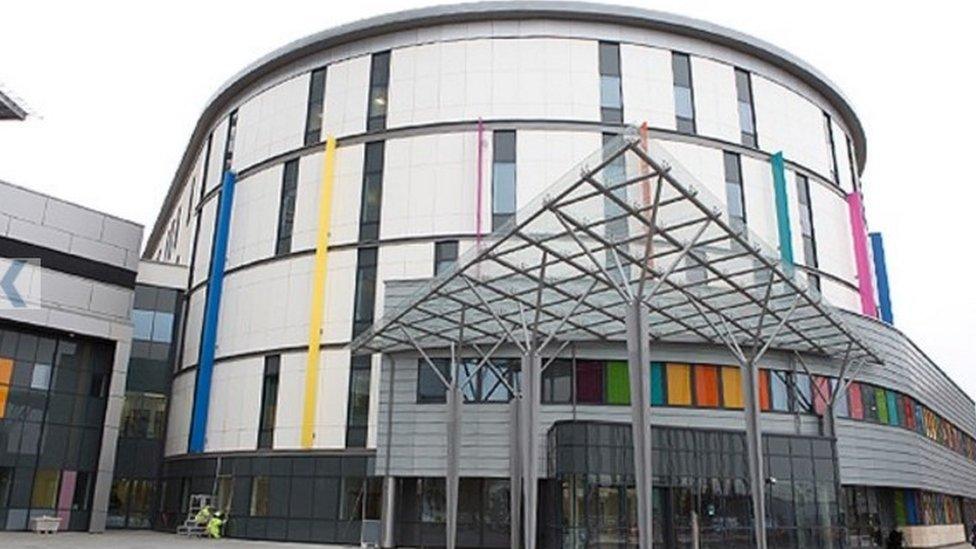Scottish hospitals inquiry: What is being investigated?
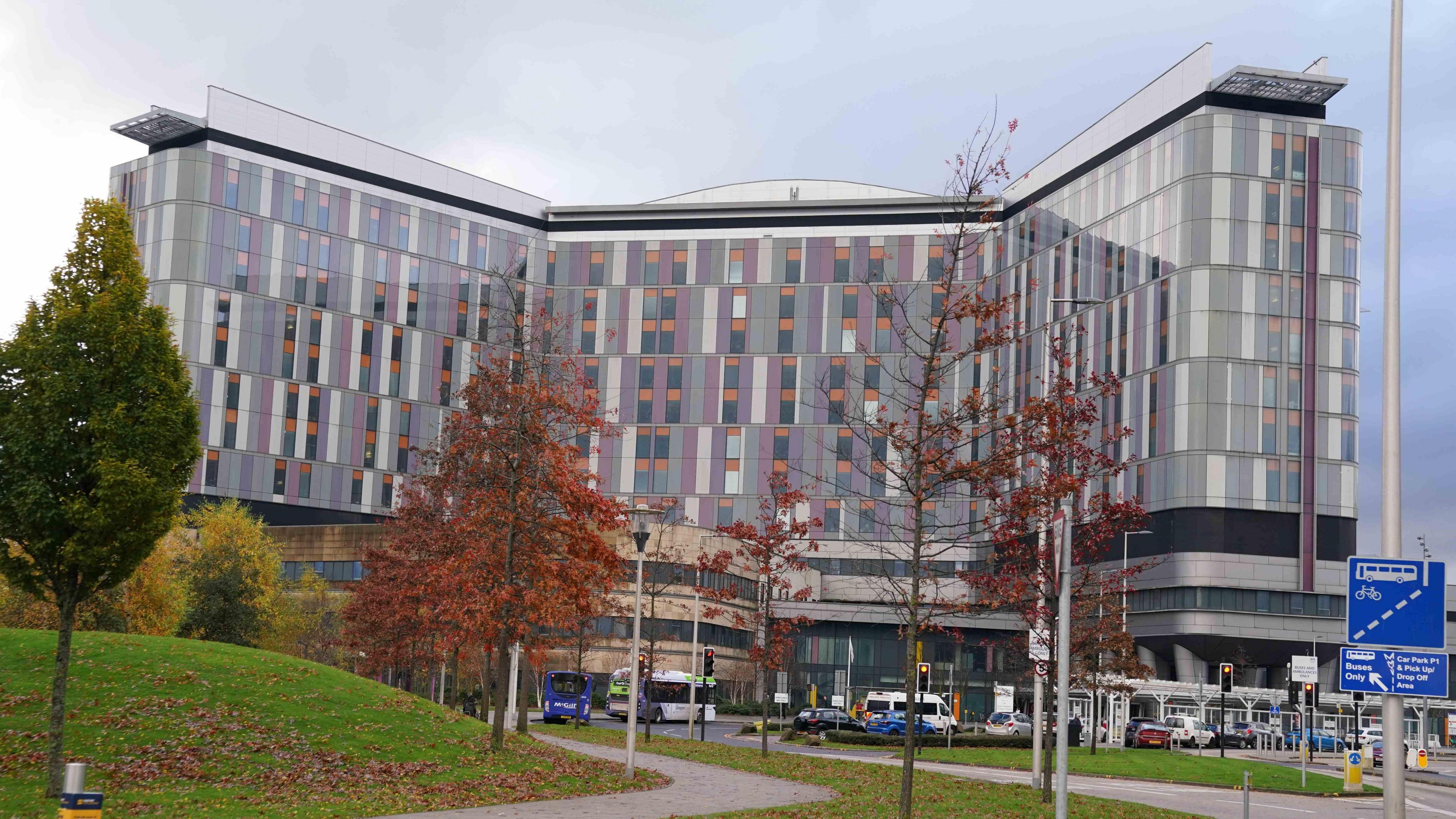
The Queen Elizabeth University Hospital in Glasgow opened in 2015
- Published
A long-running public inquiry into safety and wellbeing issues at two Scottish hospitals has resumed.
In the coming weeks it will examine contentious new evidence from Glasgow's health board about the risk of infection from the water and ventilation systems at the Queen Elizabeth University Hospital and Royal Hospital for Children from 2016-2019.
It became the subject of a court challenge after the chair Lord Brodie initially refused to consider it under the terms of the inquiry.
Why is the inquiry being held and what is it covering?
The inquiry is being chaired by Lord Brodie KC and is examining issues at both the QEUH campus in Glasgow, and the Royal Hospital for Children and Young People (RHCYP) and Department of Clinical Neurosciences in Edinburgh.
The RHCYP in Edinburgh was due to open in July 2019 but was delayed after last-minute inspections found safety concerns over its ventilation systems.
The Scottish government then stepped in to prevent the hospital from opening just days before it was due to accept patients and there was then a 20-month delay until its full opening while improvements were made.
The £840m QEUH campus, which includes the Royal Hospital for Children, was hailed as a world leading facility when it opened in 2015.
But a series of infection outbreaks and concerns around the water and ventilation systems began to emerge three years later - and a number of patients died including 10-year-old Milly Main.
An independent review into the hospital's design published its findings in June 2020.
The report found a "series of problems" with the design and build of the hospital, but no clear evidence to link those failures to any "avoidable deaths".
However, that investigation did not consider child cancer patients.
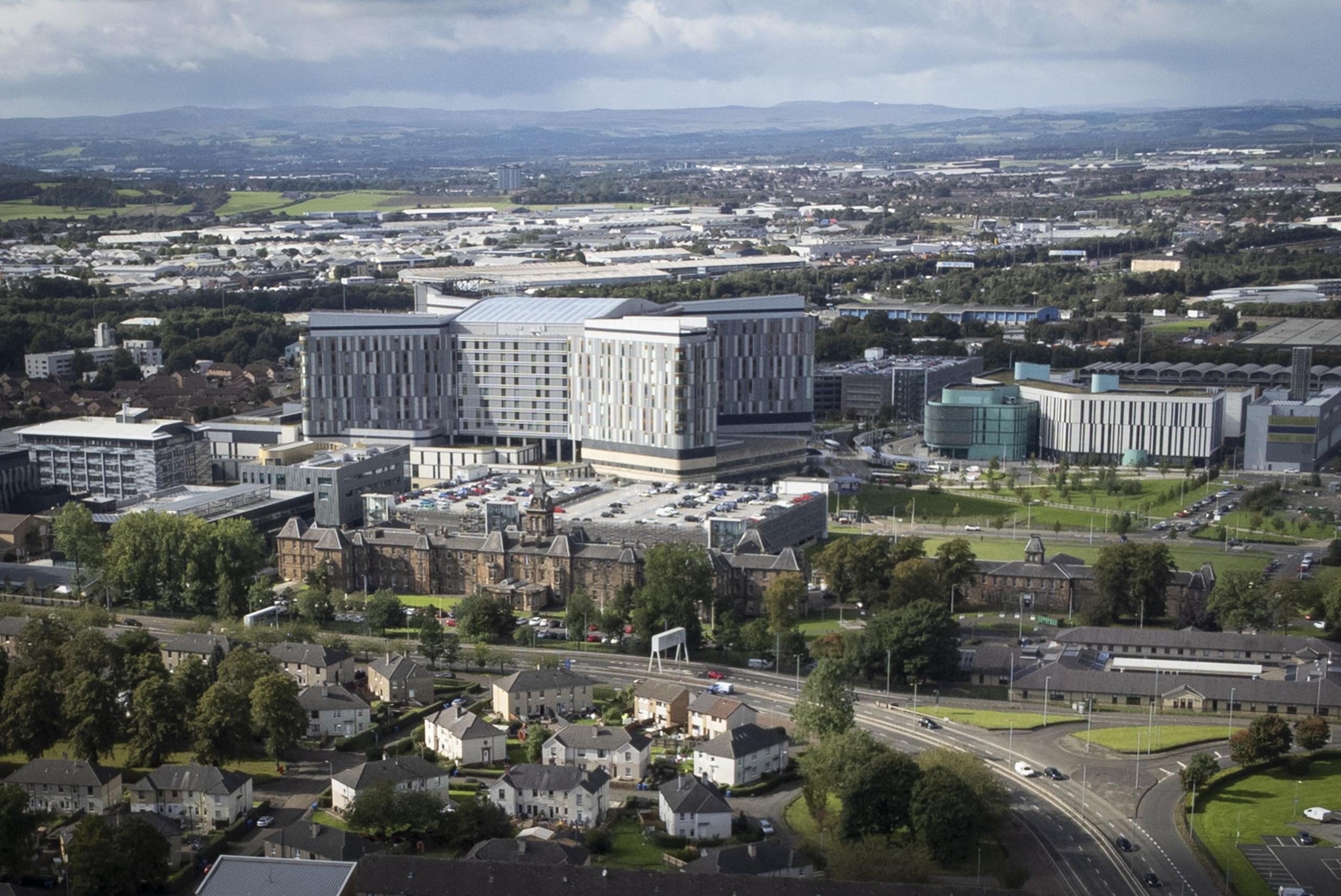
The £840m Queen Elizabeth University Hospital campus in Glasgow is Scotland's largest hospital
What is the format of the inquiry?
The statutory public inquiry is being led by Lord Brodie, a High Court judge, and held under the Inquiries Act 2005.
This gives it the power to require witnesses to attend and to disclose information related to the inquiry's work.
The independent inquiry describes its "overarching aim" as considering the "planning, design, construction, commissioning and, where appropriate, maintenance" of both the hospitals.
It will determine how ventilation and water contamination issues affected patient safety and care - and whether these issues could have been prevented.
The inquiry will also recommend how "past mistakes" in both projects can be avoided in future NHS projects.
Why did the Scottish government order the inquiry?
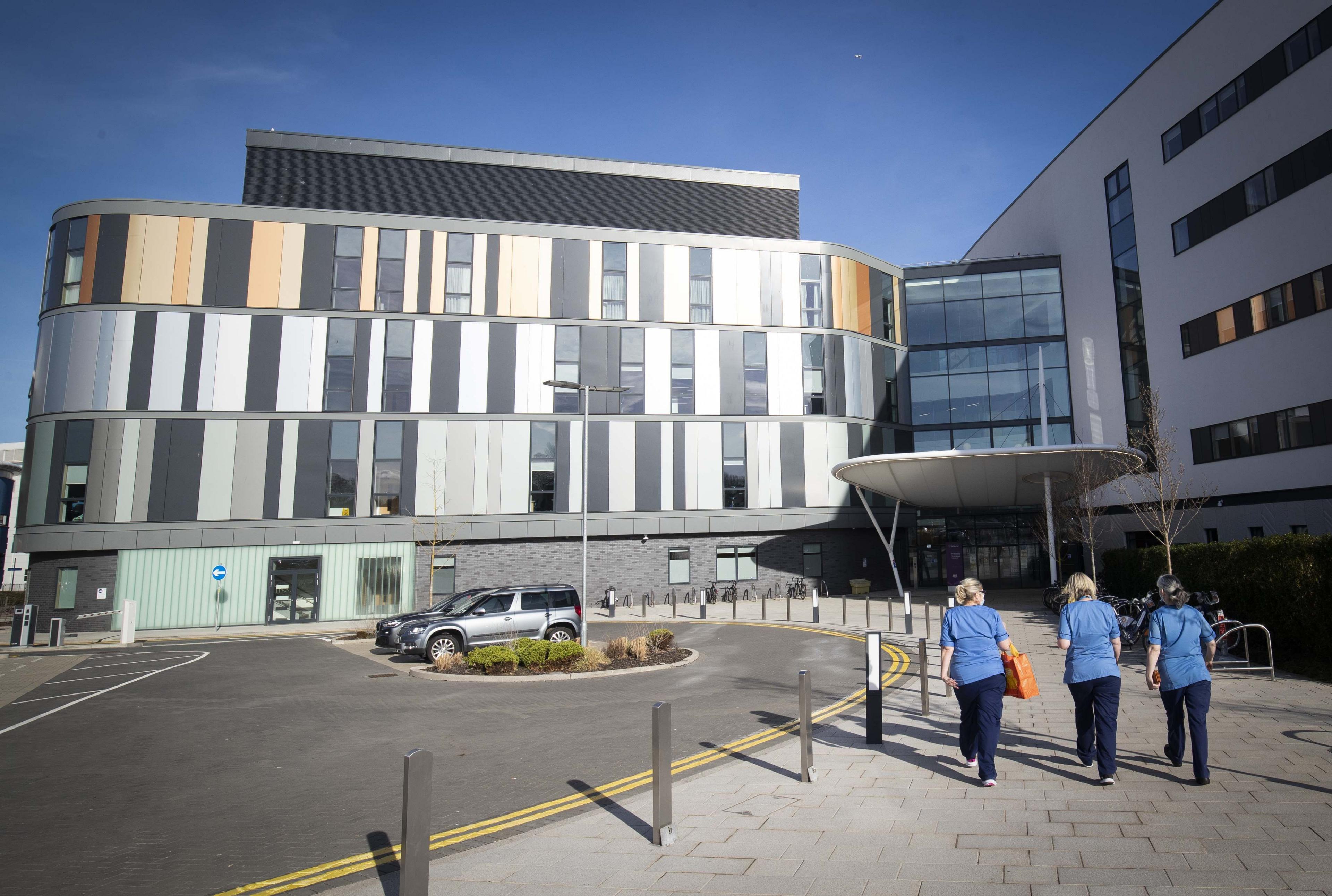
The opening of the Royal Hospital for Children and Young People (RHCYP) and Department of Clinical Neurosciences in Edinburgh was stopped at the last minute in 2019
Former health secretary Jeane Freeman ordered the public inquiry in September, 2019 and in June the following year she set out its terms of reference.
Ms Freeman said it had been ordered to protect the "safety and well-being of all patients and their families" which she said should be a "primary consideration" in all NHS construction projects.
The announcement followed an intense period of scrutiny over the delays to the RHCYP in Edinburgh and a series of of infection outbreaks - and at least four deaths - at the QEUH.
A BBC Scotland investigation in June 2020 also spoke to senior doctors at the QEUH campus who said their attempts to raise concerns about risks to patient safety were not taken seriously.
They told BBC Scotland's Disclosure they were branded as troublemakers for raising the alarm.
What evidence has the inquiry heard so far?
During the first Glasgow hearing in 2021, Lord Brodie heard evidence about the physical, emotional, and other impacts on patients and families.
The inquiry also heard how a doctor told a mum her son would be safer at home getting cancer treatment than at the QEUH campus.
Other evidence included a mother, whose son was being treated for cancer on a children's ward, likening the hospital environment to "a third world country".
The second of the Glasgow public hearings last year heard from oncologists in the child cancer wards and those directly involved with patients.
One expert said she had never experienced a "more seriously toxic atmosphere" than the one she found among infection prevention and control staff at the QEUH.
A former infection control nurse also told the inquiry that staff at the children's hospital felt "extreme anxiety" that child cancer patients were unsafe.
And a senior doctor gave evidence that she was "appalled" at the state of child cancer wards when the new £870m hospital opened in 2015.
But a senior medical director said there was no direct evidence that unusual infections in child cancer patients were linked to a Glasgow hospital building.
Earlier this year the inquiry published its separate report on Edinburgh's Sick Kids hospital, concluding that it was delayed after NHS Lothian failed to give clear ventilation requirements for the building.
NHS Lothian apologised for the failures in its design brief highlighted in the report.
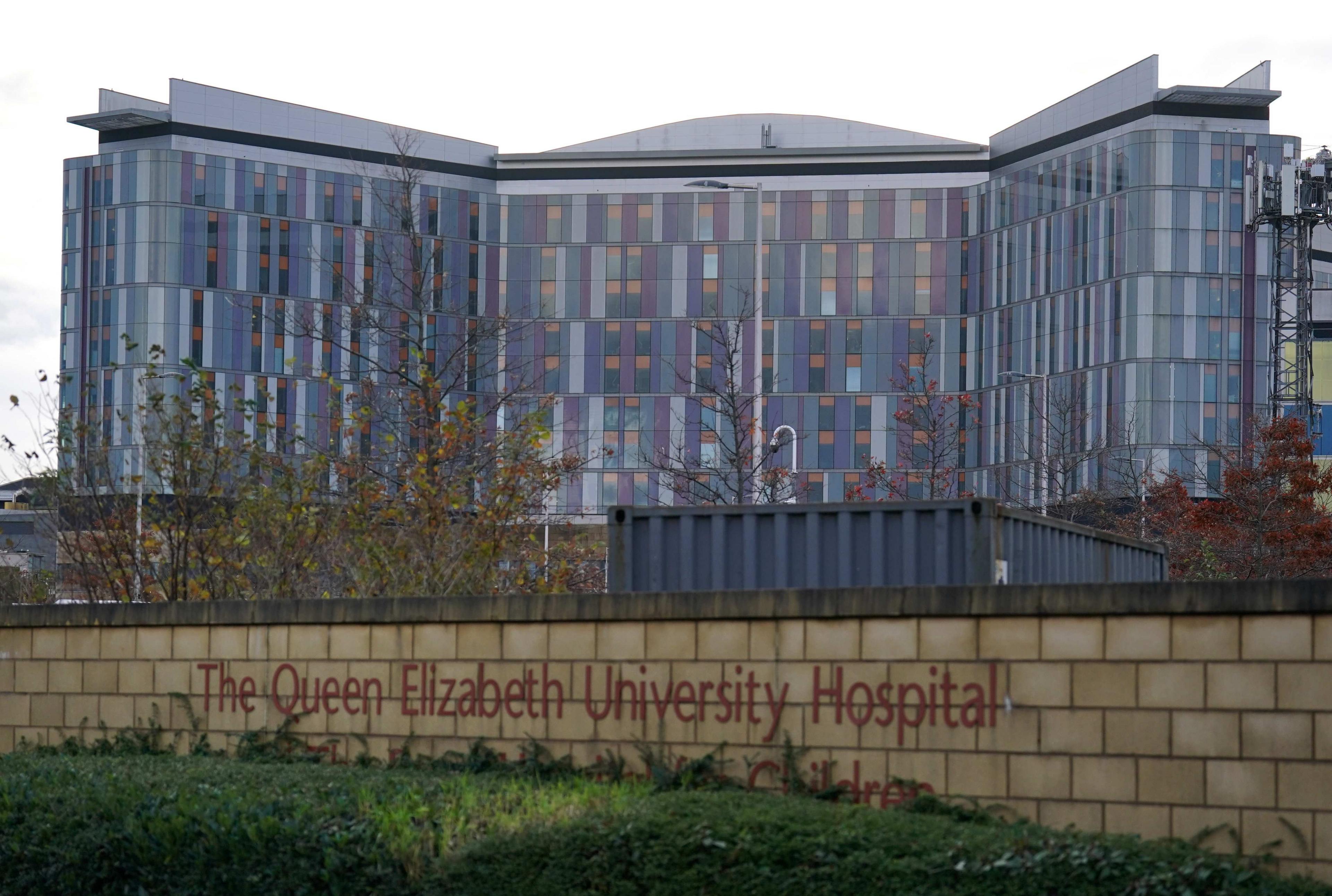
Who will we hear from in the latest phase of the inquiry?
This section of the inquiry will consider new evidence from NHS Greater Glasgow and Clyde (NHS GGC), submitted in a 218-page report claiming the Queen Elizabeth University Hospital campus had no excess infections since 2015.
The findings of the report were in conflict with a previous independent review of cases, which connected the deaths of at least two child cancer patients in part to infection linked to the hospital environment.
The inquiry initially rejected the report, saying it would delay progress and turn it into an "adversarial contest", but this decision was overturned after NHS GGC challenged it in court.
A judicial review at the Court of Session ruled that the rejection of the new evidence was "wrongly decided and consequently unfair".
What have some of the affected families said?
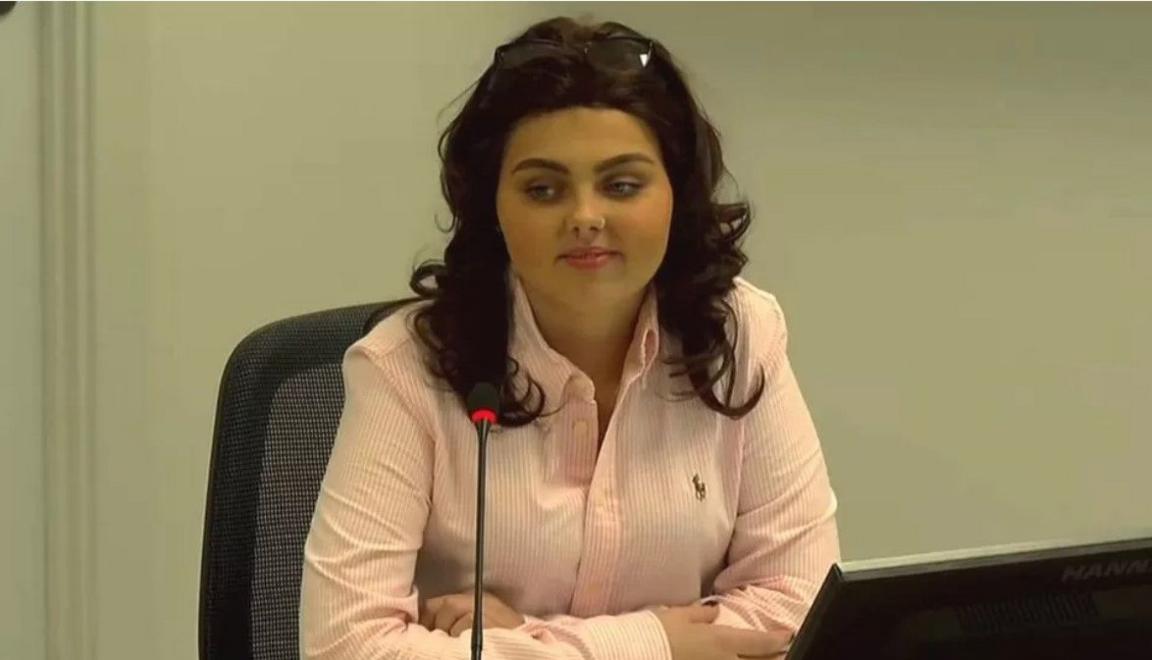
Molly Cuddihy gave evidence to the inquiry in 2021 and told how she contracted a rare bacterial infection when she was undergoing cancer treatment
Among those who have followed the Scottish Hospitals Inquiry closely since 2019 is Prof John Cuddihy whose daughter Molly contracted an infection while undergoing cancer treatment at the Glasgow hospitals.
He said: “I think when you consider the length of time that it is taking, and accepting that it is a very complex inquiry, four years is hard length of time for anybody.
"And particularly when patients continue to be treated and they continue to endure the trauma that they had gone through in 2018 all of that is ever present in their mind.
"So four years on, it is a challenge to keep motivated, to keep enthused… and I think within this we forget this is a human problem."
Another consideration for some of the affected Glasgow families is an ongoing corporate homicide investigation into the deaths of four patients at the hospital campus.
The Crown Office and Procurator Fiscal Service is probing the deaths of Milly Main, two other children and 73-year-old Gail Armstrong.
- Published12 March 2024
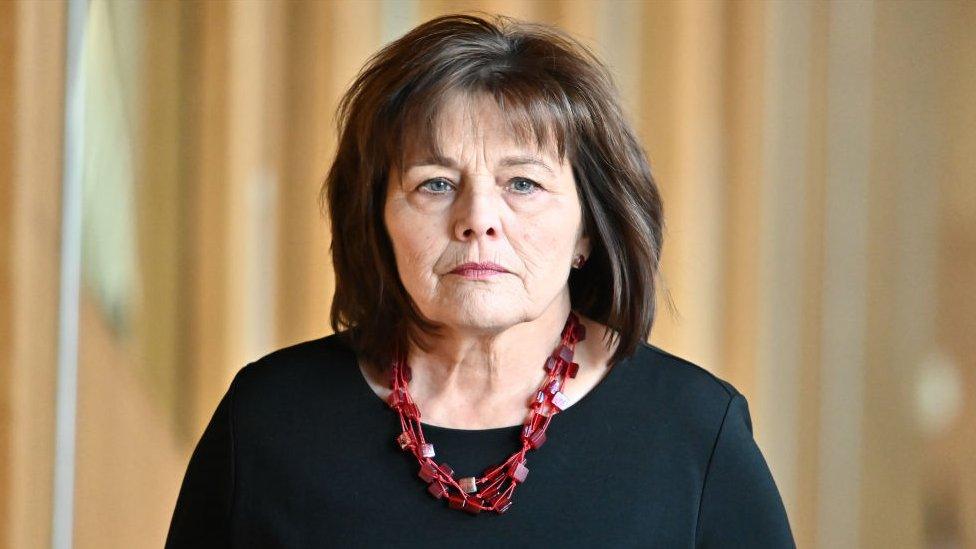
- Published25 October 2021
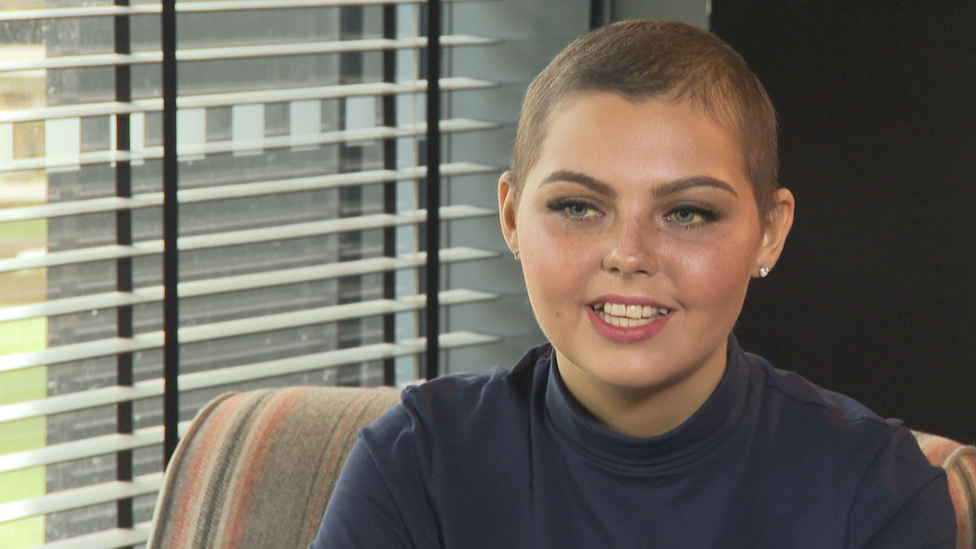
- Published23 September 2021
